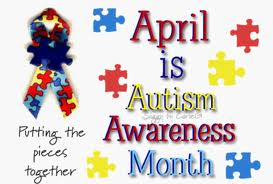Today’s post started life as an email that my friend Jacquie sent to the autism parenting group that we both belong to.
Jacquie is the mom of two boys, aged 8 and 16, who both have special needs.
Her older son, Eric, has autism. He has his challenges, but as you will see in this post, he is finding his way in the world. I will not say any more – I will let you read for yourself.
8-year-old Justin has RAD (reactive attachment disorder), autism and intellectual delay. He is one of those unreasonably good-looking kids who you just know will be making girls swoon as soon as he (and the girls) hit puberty.
And Jacquie? Well, she’s just a fabulous friend and a fantastic mom. I am immensely grateful to her for allowing me to share this story of Eric. To special needs parents like myself, this is really a story of hope.
Without further ado… over to Jacquie.
When Eric was a baby, the only way you could soothe him was singing.
When Eric was a toddler, he used to stand in the windowsill of his bedroom’s gigantic window and listen to a cassette of kid’s songs sung by kids over and over. When the tape ended, he would scream until someone came and turned it over and pressed ‘play’ again. Then he’d scream until we got the hell out of the room.
When Eric was a preschooler, he’d sit in front of Windows Media Player and watch the visualizations you could choose to go along with the music that was playing. He’s spend hours just watching these graphics move and change with the music. God forbid you try to distract him.
When Eric was in kindergarten, he developed a musical crush on Shania Twain. I still shudder to think of that year.
When Eric was in grade school, he started to make music using free music programs like garage band. It was awful. I didn’t have the heart to tell him he sucked.
When Eric got to high school, he asked for a professional-grade music-editing software suite, so we gave him that for Christmas. Subsequently we began seeing him only for meals and The Big Bang Theory.
When Eric had a little experience with production, he asked for a Mac, which has superior music production capabilities. He was taking guitar lessons, piano lessons, and music classes at school, so we thought it was probably worth it. Subsequently we began seeing him only for meals. There are days’ worth of The Big Bang Theory episodes on the PVR that have never been watched.
When Eric was a week younger than he is right now, a Danish music promoter contacted him and, based on the free content Eric has put out on music sites and on the the contests he has won with his compositions, offered him a 6 month contract.
When Eric was 12 hours younger than he is right now, we signed. Eric is now represented by a dance music label in Denmark.
His songs will go up for sale on iTunes, Spotify, Juno, and Amazon. This company will help him design his logo, refine his sound, and establish a presence in the market.
When Eric was a little boy, we mourned the way music took him away from the world. Now he’s bringing his music to the world.
(Photo used with permission of Jacquie VonHunnius).











